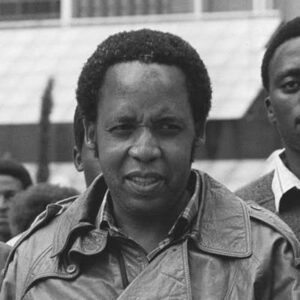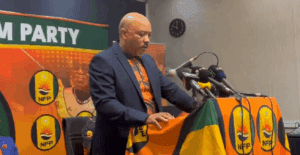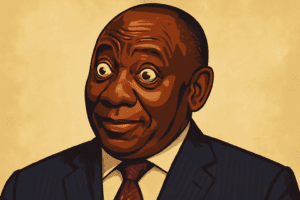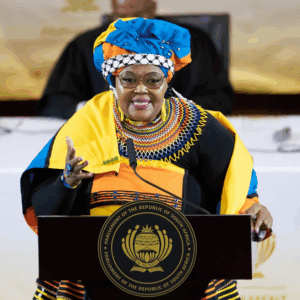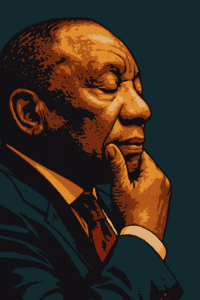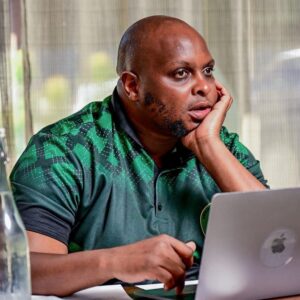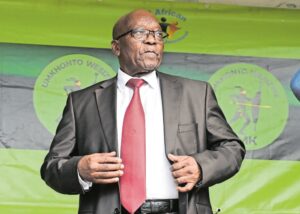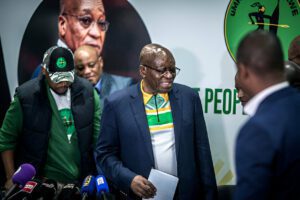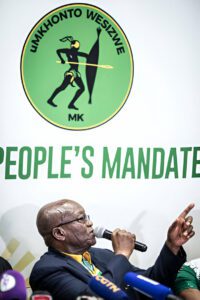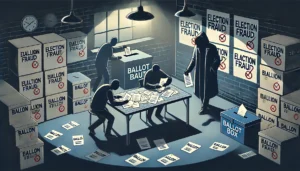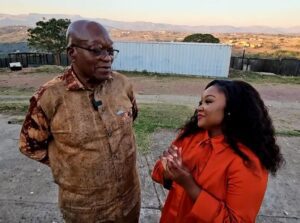Jacob Zuma, former President and now a presidential contender for the MK party, passionately addressed a large assembly, sharing his profound concerns over the governance and future direction of South Africa. Zuma, a figure intertwined with the nation’s political evolution, presented a vision that resonated with many, advocating for a reevaluation and reform of the country’s leadership structures and legal frameworks.
Reclaiming Traditional Authority and Legal System Reform
Zuma’s speech vividly painted a picture of the shift in power dynamics within South Africa, highlighting the erosion of traditional leadership roles. He reminisced on the historical transitions in governance, pinpointing colonial influences as enduring factors in the nation’s administrative and legal systems.
“Our visitors [whites] who came here and never left, the first thing they did was to take away leadership powers from traditional leaders. They introduced government, the land was taken away from traditional leaders and given it to the government. Even today our traditional leaders don’t have a say on how the country is ruled,”
Zuma articulated, echoing a widespread sentiment of loss and marginalization.
He also critiqued the legislative process, underscoring a disconnection between governmental decisions and public participation, suggesting that the enactment of laws without genuine public involvement stands in contrast to democratic ideals.
“We are given laws that are approved in Parliament, without the participation of the public, while they are telling us that we are living in a democracy. The laws are passed while the rest of the country is not aware,”
he observed, spotlighting a prevalent perception of alienation from the mechanisms of governance.
A Call for Economic Redistribution and Empowerment
At the heart of Zuma’s message was a powerful plea for economic justice and empowerment. He stressed the imperative of land restitution and economic reforms to uplift the disenfranchised, championing the creation of a government-owned bank and the restoration of land rights.
“They did not listen to us, if they don’t listen to us it means we must stand up and take back our land,”
Zuma urged, advocating for proactive measures against broken promises.
His blueprint for the nation includes a significant shift towards a legal framework that reflects African values, striving for equality and solidarity under the law.
“Everyone in South Africa must be the same and equal, no one must be better than the other. To achieve that, we are going to change laws,”
Zuma proposed, envisioning a legal system aligned with the continent’s principles.
Focusing on economic disparities, Zuma pledged to curb the export of unprocessed raw materials, promoting local processing and production to spur job creation and economic resilience.
“Our gold, that is leaving, it will stop, our gold will be dug here and processed here. We are going to build firms that will process the gold here and be sold by us, so that people can get employment,”
he asserted, proposing a shift towards an economy that prioritizes its citizens’ welfare.
As South Africa approaches a pivotal moment in its electoral cycle, Zuma’s impassioned call for a governance model that foregrounds the needs and aspirations of its people offers a vision of hope for many. His advocacy for a return to principles of fairness, empowerment, and self-determination reflects the desires of a significant portion of the South African community, yearning for real change and a future that fully embraces the nation’s rich diversity and potential.
